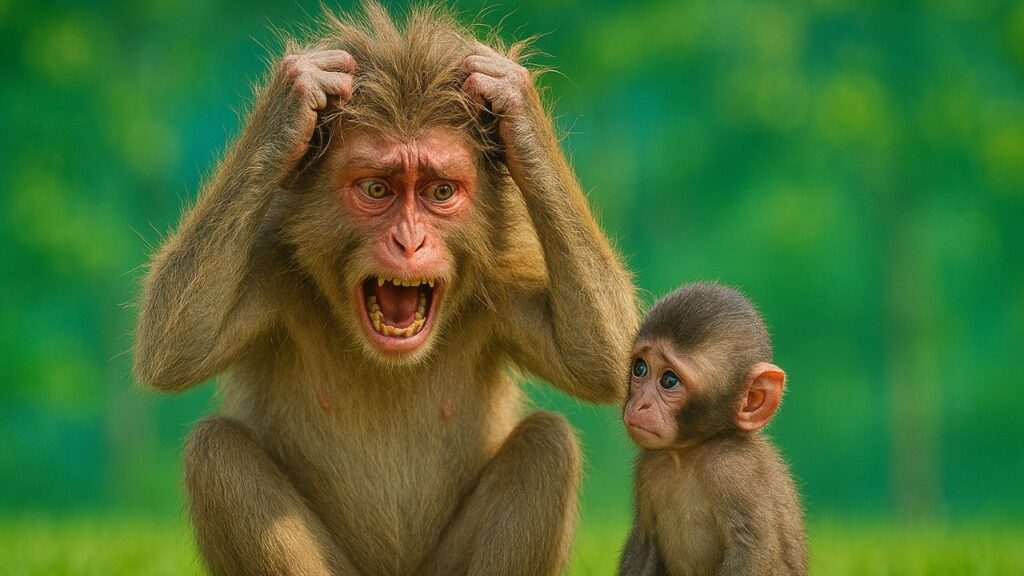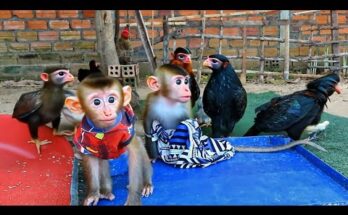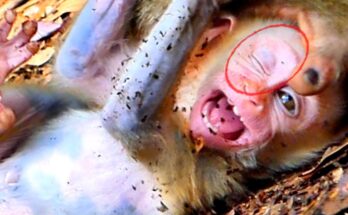
High in the canopy, far from the human world, a different kind of motherhood unfolds. Among branches, vines, and endless green, monkey mothers carry out one of nature’s most demanding roles—raising their young in the wild, where every day is a test of strength, endurance, and instinct.
From the moment a baby monkey is born, its mother’s life transforms completely. She becomes the infant’s bed, protector, and provider. For the first several weeks, she carries the baby constantly—on her chest or back—while still needing to forage for food, move with the troop, and avoid predators. Unlike humans, she has no stroller, no village, and no rest. Her life becomes a continuous balancing act.
The physical exhaustion is relentless. Climbing trees with one hand while holding a baby, grooming others in the troop to maintain social bonds, keeping alert to danger—it all takes a toll. Monkey mothers, especially in species like macaques or baboons, rarely get uninterrupted sleep. Their babies often cling through the night, and any rustle or predator call triggers immediate alertness.
So, how do they cope?
Nature has equipped them with a mix of biological resilience and emotional intelligence. Hormones like oxytocin—also called the “love hormone”—help forge the intense bond between mother and child. This bond doesn’t just create affection; it buffers stress. Studies in primate behavior show that close physical contact between monkey mothers and their infants actually helps regulate the mother’s nervous system, reducing levels of the stress hormone cortisol.
Social support also plays a key role. In many monkey species, especially those living in larger troops like rhesus macaques or vervet monkeys, female friendships matter deeply. Monkey mothers form bonds with other females—grooming each other, watching one another’s young, or resting together in safe spaces. These alliances provide not only emotional relief but also practical help. A few minutes to forage or nap without the baby can make a world of difference.
But even with support, some mothers break down. Like humans, monkeys show signs of maternal burnout—neglecting the infant, becoming socially withdrawn, or losing weight. In some extreme situations, they may even reject their young. These behaviors, while rare, remind us that stress is not just a human issue. It is woven into the fabric of motherhood across species.
Still, most monkey mothers persevere. They find strength in their connections, adapt to changing conditions, and rely on deeply ingrained instincts passed down through generations. Their resilience is not superhuman—it’s super-natural. It’s what allows life to continue in the trees, season after season.
In the quiet strength of a monkey mother, we see something familiar: the universal language of care, sacrifice, and love. Her story may unfold in the treetops, but her struggle—and triumph—echoes in every heart that has ever cared for another.


